Contents
Guide
INTRODUCTION It may surprise you to learn that Mandarin is not really the name of a language. The term 'Mandarin' actually refers to one of the seven Chinese dialect groups Mandarin being the largest of those groups. What most English speakers refer to when they use the term Mandarin is more accurately described as Modern Standard Chinese or
Ptnghu to give it its Chinese name. So, although this phrasebook has Mandarin emblazoned on its cover, the language contained in it is best described as Modern Standard Chinese. What exactly is Modern Standard Chinese-cum-Mandarin and why is it the most useful form of Chinese for the traveller? Modern Standard Chinese is based on the Beijing dialect of Mandarin. Its grammar, vocabulary and pronunciation reflect the norms of the capital.
Its the main language used in official contexts, in the media and education. Just about everyone in China therefore has exposure to the standard language and can read, speak and understand it. at a glance language name: Mandarin Chinese name in language:Ptnghu (China), Guy (Taiwan) & Huy (Singapore) language family: Sino-Tibetan family approximate number of speakers: 800 million plus close relatives: other dialects of Chinese including Hakka, Gan, Yue, Min, Xiang & Wu donations to English: tea, chopsticks, Japan, ketchup, kowtow, kung fu, wushu, tai chi & silk The Chinese name for Modern Standard Chinese, Ptnghu, literally means the common dialect and its been a powerful force for linguistic and political unity in a country with countless dialects, many of them mutually unintelligible. Aside from its use in mainland China, Modern Standard Chinese has official status in Taiwan (where its called Guy) and Singapore (where its called Huy). In addition, hundreds of thousands of people in migrant communities around the world speak Mandarin in one form or another. The total number of speakers worldwide is in excess of 800 million, making Mandarin the most widely spoken language in the world.
There are two versions of written Chinese. Simplified Chinese is used in mainland China and has been adopted by Singapore, Malaysia and other South East Asian countries. Traditional Chinese is used in Taiwan, Hong Kong and Macau. The two systems share the majority of characters but there is a small number of commonly used characters which are different. Simplified Chinese has been used throughout this phrasebook. There can be no doubt about the practical advantages of taking this Mandarin phrasebook on a trip to China with you.
It contains all the useful words and phrases to help make your trip as hassle free as possible. Another compelling reason to bring it with you are the social words and phrases which will open up a world of possibilities for social interaction and cultural exchange with the locals. By taking the time to acquaint yourself with Chinas national language youll also be accessing a vital part of a rich and ancient culture and a dynamic modern society. Add to this the aesthetic appeal of its writing system and the logical simplicity of its grammar and youll be richly rewarded for your efforts. TOOLS > pronunciation For speakers of English, the sounds of Mandarin are quite easy to produce, as many of them have equivalents in English. One aspect of the language that may prove a little challenging is the use of tones.
In Mandarin you can change the meaning of a word by altering the pitch level (tone) at which it is spoken. (See for an explanation of how this works).  Pinyin was officially adopted by the Chinese in 1958 as a way of writing Chinese using the Roman alphabet. It provided access to a common language in a vast country with countless dialects, and so played an important role in communication and development. Today in Chinese cities youll see Pinyin everywhere: on maps, road signs, shop signs and in brand names. Nevertheless, many Chinese cant read Pinyin, and youll find its use very limited in rural areas, so this book includes the Chinese script characters as well.
Pinyin was officially adopted by the Chinese in 1958 as a way of writing Chinese using the Roman alphabet. It provided access to a common language in a vast country with countless dialects, and so played an important role in communication and development. Today in Chinese cities youll see Pinyin everywhere: on maps, road signs, shop signs and in brand names. Nevertheless, many Chinese cant read Pinyin, and youll find its use very limited in rural areas, so this book includes the Chinese script characters as well.
Pinyin is back by popular demand in this new edition of the Mandarin phrasebook. Youll find it an easy system to use once youve learnt the rules on how to pronounce letters. (For example, Pinyin c is pronounced like the ts in cats and Pinyin q is pronounced like the ch in cheese.) For information on the Chinese names of the roman alphabet letters useful if, for example, you need to spell out your name on check-in see . Mandarin vowels are straightforward and youll notice that theres quite a lot of overlap with English vowel sounds. Be aware that in Pinyin vowels are often pronounced differently depending on the other letters surrounding them, as shown in the table below. 
| pinyin | english equivalent | mandarin example |
|---|
| a (an, ang) | father (fun, sung) | f (fn, fng) |
| e (en, eng) | her (broken, Deng) | g (mn, fng) |
| i (in, ing) | peel (pin, ping) | p (pn, png) |
| i (after z, c, or s) | girl | z |
| i (after zh, ch, sh or r) | like the r in Grrr! | sh |
| o (ong) | more (Jung) | b (tng) |
| u | tool | sh |
| (and u or un after j, q, x or y) | similar to new pronounced with rounded lips | l (q, yn) |
Mandarin has quite a few dipthongs (vowel sound combinations) and vowel and consonant combinations when the letters i and u occur before other vowels, they are pronounced y and w respectively.
Again, youll notice that most of these have counterparts in English.
| pinyin | english equivalent | mandarin example |
|---|
| ai | aisle | zi |
| ao | now | bo |
| ei | pay | bi |
| ia | yard | ji |
| ian | yen | tin |
| iang | young | xing |
| iao | loud | xio |
| ie | yes | xi |
| iong | Jung | xingd |
| iu | yolk | qi |
| ou | low | lu |
| ua | wah! | gu |
| uai | why | kui |
| uan | one | chun |
| uan (after j, q, x or y) |

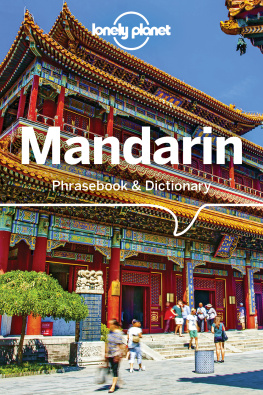
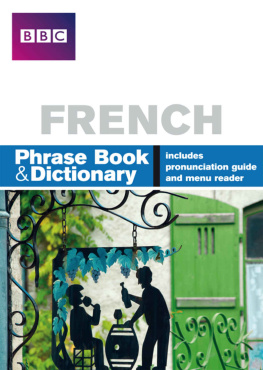
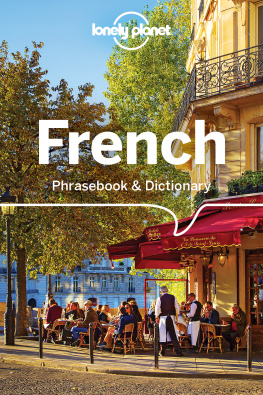
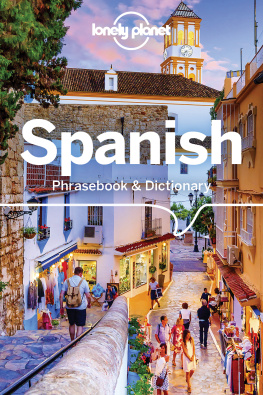
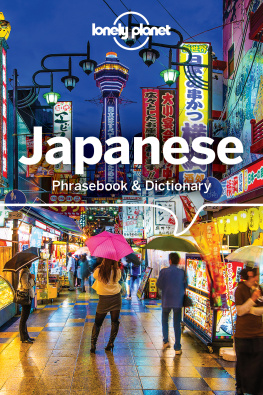
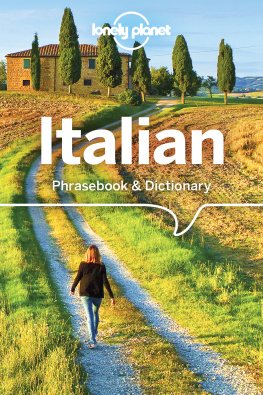
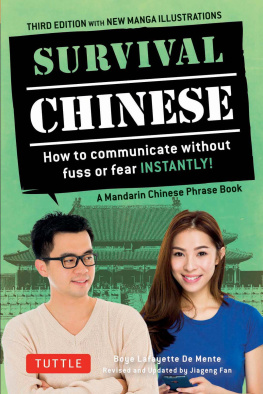
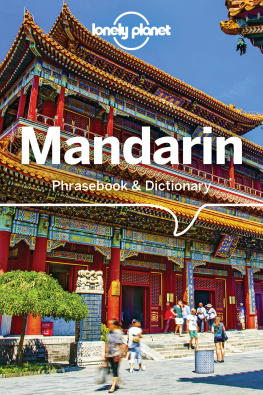
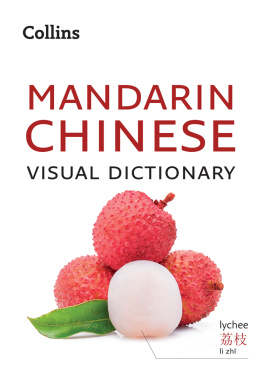
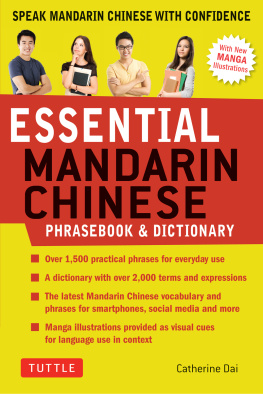
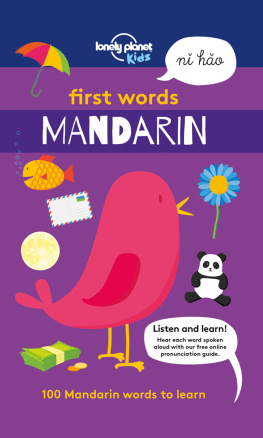
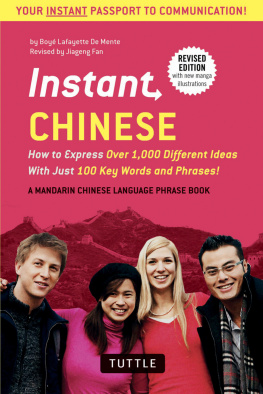
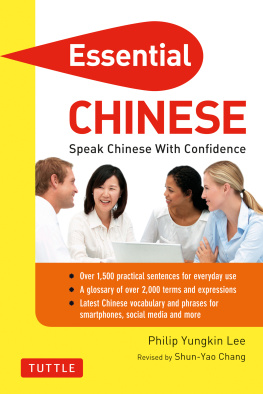
 Pinyin was officially adopted by the Chinese in 1958 as a way of writing Chinese using the Roman alphabet. It provided access to a common language in a vast country with countless dialects, and so played an important role in communication and development. Today in Chinese cities youll see Pinyin everywhere: on maps, road signs, shop signs and in brand names. Nevertheless, many Chinese cant read Pinyin, and youll find its use very limited in rural areas, so this book includes the Chinese script characters as well.
Pinyin was officially adopted by the Chinese in 1958 as a way of writing Chinese using the Roman alphabet. It provided access to a common language in a vast country with countless dialects, and so played an important role in communication and development. Today in Chinese cities youll see Pinyin everywhere: on maps, road signs, shop signs and in brand names. Nevertheless, many Chinese cant read Pinyin, and youll find its use very limited in rural areas, so this book includes the Chinese script characters as well.